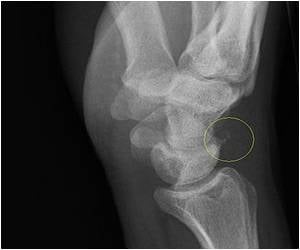A recent study indicates that zoledronic acid does not improve disease-free survival in breast cancer patients and should not be routinely prescribed for this purpose.

Bisphosphonates are normally used for osteoporosis, a bone condition that often affects postmenopausal women. Osteoporosis results in thinning of bones, which makes them vulnerable to fractures. Thus, if bisphosphonates prove to be useful in breast cancer, they would provide additional benefit in preventing osteoporosis in these patients.
A study was carried out to evaluate the benefit of a bisphosphonate named zoledronic acid in the treatment of breast cancer. The results of this study were recently published in the New England Journal of Medicine. 3360 women suffering from stage II or early stage III breast cancer were included in the study. They all received standard adjuvant therapy which included radiotherapy and/or chemotherapy as well as other treatments like trastuzumab, according to the protocol of the institution in which they were being treated. In addition, one half of the patients received intravenous zoledronic acid on a periodic basis for a total duration of 5 years. Surgical treatment was intended after completion of adjuvant chemotherapy. Patients with distant metastasis or those unable to complete treatment of the primary cancer were excluded from the study.
The researchers found that the number of women who were alive and disease-free at the end of five years was similar in the two groups. The number of women who suffered recurrent cancer or death was also similar in the two groups.
Women on zoledronic acid were prone to dental-related side effects including osteonecrosis or damage to the jaw, which is a known side effect of zoledronic acid. Seventeen cases were confirmed and 9 cases were suspected of zoledronic acid-induced osteonecrosis. The incidence of fractures, however, was lower in the group taking zoledronic acid.
The study deduced that zoledronic acid did not improve survival in these breast cancer patients. However, it may show some benefit in women who have undergone menopause at least 5 years before the start of treatment.
Reference:
Source-Medindia














